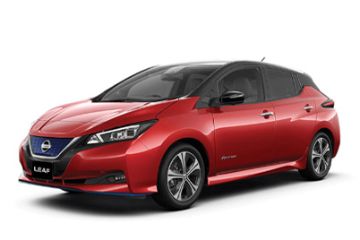![Nissan flips on its Blue Switch Program in the ASEAN region 01]()
You’ve probably heard that most automakers are going green but Nissan is instead going blue with the expansion of its Blue Switch program to the ASEAN region. The programme aims to address social concerns by leveraging the unique capabilities of electric vehicles (EVs) for applications beyond the surface mobility.
Last year, Nissan announced its long-term vision, Nissan Ambition 2030, that aspires to deliver superior value to customers by empowering society through electrified vehicles and technological innovations. An offshoot of this to help the process along is Blue Switch; launched in 2018 in Japan.
![Nissan flips on its Blue Switch Program in the ASEAN region 02]()
“As a pioneer in EVs, Nissan is committed to promoting new ways to use EVs to contribute to a cleaner world and a sustainable society. Electrification is central to our strategy in ASEAN and the expansion of Blue Switch to our region is a critical milestone in fulfilling our long-term vision for empowering mobility and beyond,” said Isao Sekiguchi, Regional Vice President, Marketing and Sales, Nissan ASEAN.
Also Read: Want an electric car? Here are EVs available in Malaysia and her neighbouring countries
“Through this initiative, we look forward to building strategic partnerships with local governments and partners in Thailand, the Philippines, and other markets in ASEAN to making this a reality,” added Sekiguchi.
![Nissan flips on its Blue Switch Program in the ASEAN region 01]()
So, what exactly is Blue Switch? Simply put, the program promotes the use of EVs to help communities, from disaster relief efforts to providing energy management solutions.
Also Read: Review: 2nd-gen Nissan Leaf – Perfect introduction to EVs
Nissan’s vision of utilising EVs such as the Nissan Leaf in disaster relief is evident in the recent response to Typhoon Rai that caused power outages in the Philippines. The Leaf assisted distressed communities in Cebu and Tacloban in providing power from its high-capacity battery to charge over 1,000 mobile phones.
![Nissan flips on its Blue Switch Program in the ASEAN region 02]()
Building further on that capacity is Nissan Energy Share that deploys EVs as mobile storage batteries to supply homes and society with electricity. To demonstrate this unique energy management capability of the Nissan Leaf, Nissan has opened ‘Nissan Electrification Experience Centre’ at Samut Prakarn, Thailand.
Also Read: Why it’s difficult for ETCM to offer the Nissan Note e-Power in Malaysia
The centre will serve as a knowledge and experience hub for all public keen to understand the role of Nissan’s EVs beyond mobility. The facility is supported by the Thailand Electricity Generation Authority, and partners, including Delta Electronics Thailand and Nichicon Thailand Co.
![Nissan flips on its Blue Switch Program in the ASEAN region 03]()
Additionally, as part of its efforts to reduce CO2 emissions from its production process, the company is encouraging the use of renewable energy at its plants. Nissan Thailand’s Plant 2 features solar rooftop panels that accounts for over 1/3 of the total energy generation of the facility. Generating energy by solar power in a month can help reduce 400 tons of CO2 emission and pollution – equivalent to the carbon emission by 86 cars or planting 566 trees.
Also Read: Confused by EV terms? Here's everything you need to know
Lastly, Nissan will also look to support the tourism sector by exploring how EV technology can contribute to decarbonisation and optimisation of the vast local transportation network. For instance, Nissan is currently working with the Department of Tourism in the Philippines on Safe Trips campaign to promote eco-tourism.












